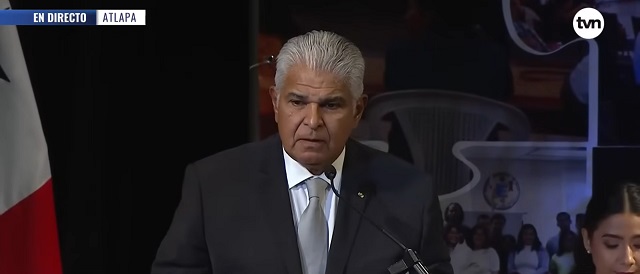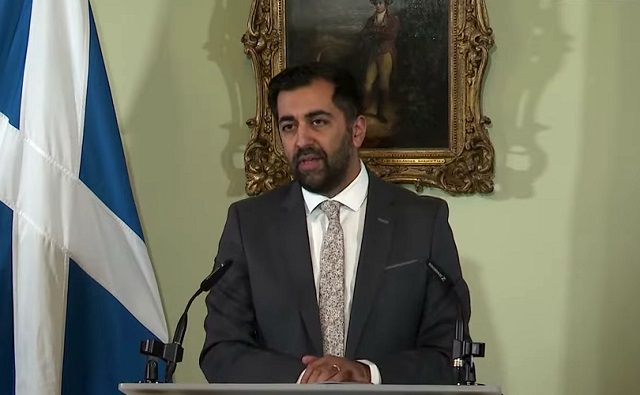Economy
Politics the only consistency in carbon tax policy

From the Frontier Centre for Public Policy
By Lee Harding
Never mind that there is no easy connection between CO2 and temperatures, except in […]
The misplaced idea that carbon dioxide is pollution undergirds the dubious concept of the carbon tax. Never mind that there is no easy connection between CO2 and temperatures, except in the easily questioned computer models created by climate change proponents. Nevertheless, the carbon tax policy is the signature climate change policy of the Trudeau Government. This tax has raised energy prices across the country and supercharged inflation without any impact on reducing harmless carbon dioxide emissions.
The main impact of the carbon tax is to reduce of everybody’s living standards just a bit more each year. Finally, it seems to have succeeded in doing something else: undermining Liberal support. The awkward attempt to solve this political and policy problem sent federal arguments for the carbon tax into complete contradiction last week.
On October 26 Prime Minister Justin Trudeau announced a three-year moratorium on carbon taxes for home heating oil, a move that was good politics but curious policy.
“We’ve heard clearly from Atlantic Canadians through our amazing Atlantic MPs that since the federal pollution price came into force … certain features of that pollution price needed adjusting to work for everyone,” said Trudeau.
You see, last July Atlantic provinces had to give Ottawa worthy proposals to keep themselves out of Ottawa’s carbon pricing scheme. They failed, so their citizens have felt the pinch. Forty percent of Atlantic Canadians, but only three percent of all Canadians use fuel oil.
This reality facilitated a political solution–a national policy with mostly regional consequences for Liberal support. The problem was how to spin it.
“We are doubling down on our fight against climate change and…supporting Canadians while we fight climate change,” the PM said.
“Economists and experts around the world have long known that putting a price on carbon emissions is the best way to drive down those emissions that cause climate change, is the cheapest, most efficient and most impactful way and it’s working,” the PM insisted.
This circle can’t be squared, except politically. The fuel oil announcement was made hours before Conservative Leader Pierre Poilievre held his scheduled “Axe the Tax” rally against carbon taxes in Windsor, N.S., the riding of Liberal Atlantic Caucus chair Kody Blois.
Put together, this is a national but regional policy to adjust a carbon tax that works but does not work. It’s doubtful that taxes or grants will change the weather, of course, but fuel oil was unworthy of an exemption.
The heat output per gallon of fuel oil is 138,690 British Thermal Units and almost equal to that of natural gas (139,050 BTU). However, natural gas only produces 117 lbs of CO2 per million BTU, whereas distillate fuel oil produces more than 160 lbs. The worst “polluters” just got a break.
Meanwhile, residents west of Quebec, where natural gas use ranges from 49 to 77 per cent, will pay carbon taxes, as they always have–and more so as they increase every April. It’s moves like this that have allowed a federal government to maintain power that hasn’t won the popular vote since 2015.
Poilievre’s plan to end the carbon tax is a winner for policy sanity.
Lee Harding is a Research Fellow at the Frontier Centre for Public Policy.
Automotive
Governments in Canada accelerate EV ‘investments’ as automakers reverse course

From the Fraser Institute
Evidence continues to accrue that many of these “investments,” which are ultimately of course taxpayer funded, are risky ventures indeed.
Even as the much-vaunted electric vehicle (EV) transition slams into stiff headwinds, the Trudeau government and Ontario’s Ford government will pour another $5 billion in subsidies into Honda, which plans to build an EV battery plant and manufacture EVs in Ontario.
This comes on top of a long list of other such “investments” including $15 billion for Stellantis and LG Energy Solution, $13 billion for Volkswagen (with a real cost to Ottawa of $16.3 billion, per the Parliamentary Budget Officer), a combined $4.24 billion (federal/Quebec split) to Northvolt, a Swedish battery maker, and a combined $644 million (federal/Quebec split) to Ford Motor Company to build a cathode manufacturing plant in Quebec.
All this government subsidizing is of course meant to help remake the automobile, with the Trudeau government mandating that 100 per cent of new passenger vehicles and light trucks sold in Canada be zero-emission by 2035. But evidence continues to accrue that many of these “investments,” which are ultimately of course taxpayer funded, are risky ventures indeed.
As the Wall Street Journal notes, Tesla, the biggest EV maker in the United States, has seen its share prices plummet (down 41 per cent this year) as the company struggles to sell its vehicles at the pace of previous years when first-adopters jumped into the EV market. Some would-be EV makers or users are postponing their own EV investments. Ford has killed it’s electric F-150 pickup truck, Hertz is dumping one-third of its fleet of EV rental vehicles, and Swedish EV company Polestar dropped 15 per cent of its global work force while Tesla is cutting 10 per cent of its global staff.
And in the U.S., a much larger potential market for EVs, a recent Gallup poll shows a market turning frosty. The percentage of Americans polled by Gallup who said they’re seriously considering buying an EV has been declining from 12 per cent in 2023 to 9 per cent in 2024. Even more troubling for would-be EV sellers is that only 35 per cent of poll respondents in 2024 said they “might consider” buying an EV in the future. That number is down from 43 per cent in 2023.
Overall, according to Gallup, “less than half of adults, 44 per cent, now say they are either seriously considering or might consider buying an EV in the future, down from 55 per cent in 2023, while the proportion not intending to buy one has increased from 41 per cent to 48 per cent.” In other words, in a future where government wants sellers to only sell EVs, almost half the U.S. public doesn’t want to buy one.
And yet, Canada’s governments are hitting the gas pedal on EVs, putting the hard-earned capital of Canadian taxpayers at significant risk. A smart government would have its finger in the wind and would slow down when faced with road bumps. It might even reset its GPS and change the course of its 2035 EV mandate for vehicles few motorists want to buy.
Author:
Automotive
Red States Sue California and the Biden Administration to Halt Electric Truck Mandates

From Heartland Daily News
By Nick Pope
“California and an unaccountable EPA are trying to transform our national trucking industry and supply chain infrastructure. This effort—coming at a time of heightened inflation and with an already-strained electrical grid—will devastate the trucking and logistics industry, raise prices for customers, and impact untold number of jobs across Nebraska and the country”
Large coalitions of red states are suing regulators in Washington, D.C., and California over rules designed to effectively require increases in electric vehicle (EV) adoption.
Nebraska is leading a 24-state coalition in a lawsuit against the Environmental Protection Agency’s (EPA) recently-finalized emissions standards for heavy-duty vehicles in the U.S. Court of Appeals for the D.C. Circuit, and a 17-state coalition suing the state of California in the U.S. District Court for the Eastern District of California over its Advanced Clean Fleet rules. Both regulations would increase the number of heavy-duty EVs on the road, a development that could cause serious disruptions and cost increases across the U.S. economy, as supply chain and trucking sector experts have previously told the Daily Caller News Foundation.
“California and an unaccountable EPA are trying to transform our national trucking industry and supply chain infrastructure. This effort—coming at a time of heightened inflation and with an already-strained electrical grid—will devastate the trucking and logistics industry, raise prices for customers, and impact untold number of jobs across Nebraska and the country,” Republican Nebraska Attorney General Mike Hilgers said in a statement. “Neither California nor the EPA has the constitutional power to dictate these nationwide rules to Americans. I am proud to lead our efforts to stop these unconstitutional attempts to remake our economy and am grateful to our sister states for joining our coalitions.”
(RELATED: New Analysis Shows Just How Bad Electric Trucks Are For Business)
While specifics vary depending on the type of heavy-duty vehicle, EPA’s emissions standards will effectively mandate that EVs make up 60% of new urban delivery trucks and 25% of long-haul tractors sold by 2032, according to The Wall Street Journal. The agency has also pushed aggressive emissions standards for light- and medium-duty vehicles that will similarly force an increase in EVs’ share of new car sales over the next decade.
California’s Advanced Clean Fleet rules, meanwhile, will require that 100% of trucks sold in the state will be zero-emissions models starting in 2036, according to the California Air Resources Board (CARB). While not federal, the California rules are of importance to other states because there are numerous other states who follow California’s emissions standards, which can be tighter than those required by the EPA and other federal agencies.
Critics fear that this dynamic will effectively enable California to set national policies and nudge manufacturers in the direction of EVs at a greater rate and scale than the Biden administration is pursuing.
Trucking industry and supply chain experts have previously told the DCNF that both regulations threaten to cause serious problems for the country’s supply chains and wider economy given that the technology for electric and zero-emissions trucks is simply not yet ready to be mandated at scale, among other issues.
Neither CARB nor the EPA responded immediately to requests for comment.
Nick Pope is a contributor to The Daily Caller News Service.
Originally published by The Daily Caller. Republished with permission.
-

 illegal immigration2 days ago
illegal immigration2 days agoPanama’s Incoming President Wants To Shut Down His Country’s Most Treacherous Route For Migrants — But Will It Work?
-

 COVID-191 day ago
COVID-191 day agoMore victories for freedom as ArriveCAN charges dropped and fines reduced
-

 City of Red Deer2 days ago
City of Red Deer2 days agoCity Council paving the way for more house suites, backyard suites, tiny homes, and duplexes
-

 COVID-191 day ago
COVID-191 day agoTrudeau government only sought legal advice after Emergencies Act was invoked, records indicate
-

 Brownstone Institute2 days ago
Brownstone Institute2 days agoThe WHO’s Proposed Pandemic Agreements Worsen Public Health
-

 Alberta1 day ago
Alberta1 day agoProvince announces next step to revamped health care system
-

 Health2 days ago
Health2 days agoTHE WPATH TAPES: Behind-The-Scenes Recordings Reveal What Top Gender Doctors Really Think About Sex Change Procedures
-

 COVID-192 days ago
COVID-192 days agoTrudeau’s public health agency recommends another experimental COVID booster








